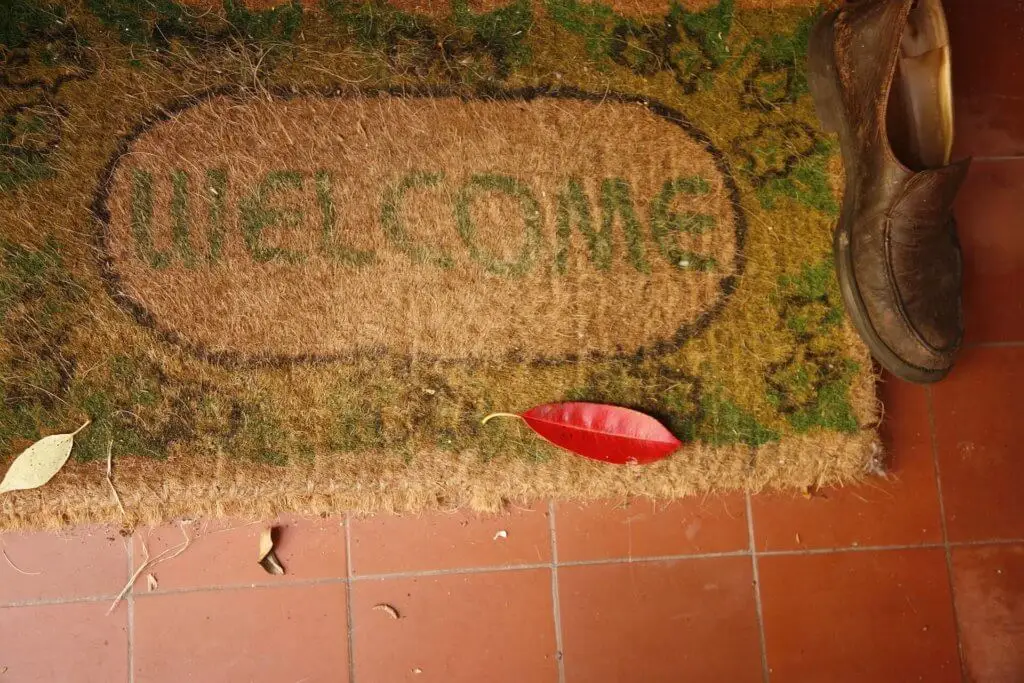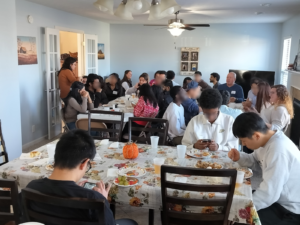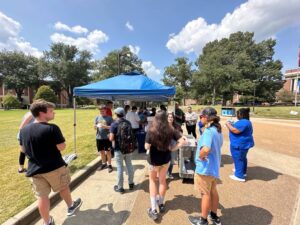No one likes being the “new kid on the block.” Just thinking about it takes us back to those times when we experienced loneliness and unfamiliarity in the new places of our lives. It even makes me think about my early years of school as I tried to fit in and be accepted by others I didn’t yet know.
That’s why being welcomed into a new neighborhood or community can be such a wonderful feeling. Welcome is a powerful word.
Over the course of 42 years, my wife and I have moved quite a bit and with every move came the feelings I described above. Whether the move was here in the United States or overseas where we served as missionaries, we always felt like the “new kids on the block.”
Finding a Warm Welcome
I will always remember one particular move when our new neighbors rushed right over. “Welcome,” they said. “Would you like to come over for dinner tonight?” How great it felt to receive such warm hospitality. Just one family reaching out to us made us feel so welcomed to our new city and neighborhood.
It’s amazing how powerful the word “welcome” and a simple meal can be in helping one to feel acclimated and accepted into their new community.
During the time Kathy and I lived in Brazil, we moved from the city where we attended a language school to our new city of ministry one thousand miles to the south. We tried to connect with our new neighbor’s next door. They were cordial enough but our conversation was stilted and superficial. I will never forget the Sunday morning when their shallow greetings turned into something more. “Come over and have some Chimarrão,” they offered. Chimarrão, also known as erva mate, is a caffeine rich infused tea that’s quite popular in Southern Brazil. Being invited over to our neighbors to drink tea was exciting for us. Not only did we feel “welcomed,” we felt honored to be included in one of the most culturally important customs of the region. “Chimarrão é Amizade,” is one of the local sayings. Translated, that means Chimarrão is friendship. Our neighbors shared that adage with us, adding that drinking chimarrão with family, colleagues or friends created a social bond.
It didn’t take long to became good friends with our neighbors. Our daughters were soon best friends and spent a lot of time together. The girls even had their own time to share chimarrão together.
Be a Welcoming Neighbor
Can you see how important it is to be a “welcoming” neighbor? These feelings of wanting to be included are not exclusive to our culture. Everyone feels lonely when they move to a new place that’s unfamiliar—especially international students. They arrive with the pressure to do well while studying in a second language and learning a new culture. Can you imagine how overwhelming it must be for them?
Here in the United States, we have an incredible opportunity to be welcomers to almost one million international students that arrive from countries all around the world to attend American colleges and universities every year.
It becomes even more important to be a welcomer when we discover that seventy-five percent of international students have never been invited into an American home.
Consider this excerpt from a 2011 WorldView column by IMB’s Erich Bridges entitled, Cold Welcome for International Students:
“A foreign student preparing to return home after several years at an American university left behind a full suitcase with his roommate. “What’s this?” the roommate asked. “It’s full of the gifts I brought to give Americans when they invited me to their homes,” the student replied a tinge of sadness in his voice. “No one invited me.”
WorldView: Cold welcome for international students
Listen to an audio version
Reading this story should pierce the heart of every believer! We need to reach out and welcome international students, helping them acclimate to their new home and culture. No international student who wants to have an American friend should ever be lacking. Welcome is a powerful word. Will you consider opening your home and heart to an international student?
Sidebar 1: How to Become a Welcomer
1. Contact your local university and ask about becoming a host family to an international student. Usually, this is arranged through a program in the international student office, but call the university or universities in your area to find out for sure. Programs may differ, but generally, you’ll receive a form to fill out that matches your family and a participating student. Typically you’ll be asked to host your assigned student throughout the school year. My family is hosting two students, and we make a point of including them in holiday festivities and meals as well as family birthdays, shopping excursions and worship opportunities at our church.
2. Pick up international students from the airport and help them get settled into their dorms or apartments.
3. Provide household goods and furniture for international students. Some churches and Baptist Associations have developed ministries to provide these items. International students secure household goods and furniture as they settle into their new places of residence and then bring them back at the end of the school year or when they return to their countries.
4. Embrace students as a part of your life and be a genuine friend. Invite them for meals and to special family events, church activities and excursions such as ball games, bowling, and amusement parks. On holidays like Thanksgiving, Christmas and Easter, explain the meaning of these special observances. Remember that they want to experience life in America.
When you reach out, you’ll discover a multitude of opportunities to build friendships, meet needs, and minister to people God has brought to your community. What a wonderful way to show and share the love of Jesus. Welcomers are needed. Will you be one?
Terry Sharp is the state, association and diaspora network leader for the International Mission Board.






